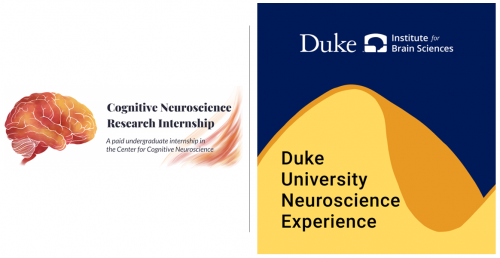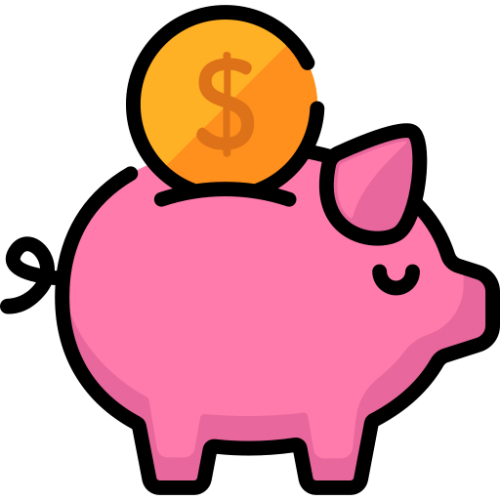
A Message from Alison Adcock, MD, PhD, Interim Director of the Duke Institute for Brain Sciences

Dear Brain Sciences Community at Duke,
The past year has offered the chance to turn our imaginations to opportunities - and needs - unforeseen even five years ago. The current moment converged with the enduring missions of Duke and DIBS in two interrelated initiatives: radically increasing access to transformative research experiences for early learners, and bringing the wealth of data and knowledge yielded by Duke brain sciences research to spark computational training and innovation.
I am deeply proud of a new educational modality developed last year by DIBS graduate students and postdoctoral researchers in response to societal and academic inequities: two paid internships designed to create equitable access to research experiences for those early in their education. With significant support from DIBS scholars and staff, and philanthropic funding for the intern compensation so crucial to inclusivity, these internships offer training on research skills not taught in courses and one-to-one mentoring.
The two programs target learners at different levels. DUNE is the Duke University Neuroscience Experience for high school students, and is supported by George Lamb and Dr. Kathryn Walder. The Cognitive Neuroscience Research Internship, for undergraduates, has been supported by the Charles LaFitte Foundation. Both programs benefit not only the interns, but also the graduate student mentors and professors who may take these well-trained students into their labs. DIBS is now poised to deepen and expand access to these research experiences, in collaboration with the Rhodes Information Initiative at Duke and the Center for Computational Thinking.
Brain science is already an apt home for transformative research experiences, and the breathtaking development of computational tools is now revolutionizing our science, including both what we can understand and how we convey our knowledge to a broad audience. Aligned with our efforts to democratize science, DIBS aims to help leverage Duke’s neuroscience and behavioral data for computational innovation. For example, Duke’s unmatched scholarly strengths in AI, computer vision, data science, generative art, and biomedical engineering create the ideal incubator for re-envisioning how we represent the brain. More broadly, these intersections offer inspiration for others to join us in new discoveries, insights that transcend preconceptions, and tools for even greater impact.
We are deeply grateful for the many contributions—intellectual and philanthropic—which have supported Duke brain science education and research over the past year. Integrating these initiatives and expanding our ability to support them is the work we look forward to with pleasure over the next year.
Yours in wonder,

R. Alison Adcock, MD, PhD
Interim Director of the Duke Institute for Brain Sciences
Awards & Honors
A snapshot of some of the many awards and honors earned by brain science scholars at Duke this past year.

DIBS is proud to have continued our support of and identified stable funding for DUNE and CNRI, which continue to further our goal of democratizing access to brain science research, especially for nascent scholars (high school and undergraduate, respectively) from historically underrepresented groups in science.

We are proud to have made three major efforts to bring in external funding for our mission to continue to grow access to brain science research experience at Duke. Two grants were submitted to NIH – 1) a T34 to support undergraduates from historically underrepresented communities who aspire to careers in neuroscience research, and 2) an R25 to enhance rigorous scientific training in neuroscience at Duke to change the culture of science, embrace and engage students from backgrounds underrepresented in science together with their peer colleagues and mentors, and improving the academic scientific training environment in neuroscience for all. 3) Additionally, we’ve submitted a grant through the Dana Foundation to create a Center for Neuroscience & Society at DIBS.
Young Minds Study the Brain at Duke
DIBS members organized and hosted the second annual Duke Undergraduate Neuroscience Experience (DUNE) summer research program for local high schoolers.
UNDERGRADUATE BRAIN ART CONTEST YIELDS EYE-POPPING VISUALS
The DIBS-sponsored competition with the Neuroscience Majors' Union drew in many wonderful, original, and creative pieces from undergraduate students at Duke, and spurred an article in a peer-reviewed scholarly journal.
NEUROBIOLOGY GRADUATE STUDENT KARIM ABDELAAL AWARDED FELLOWSHIP FROM THE HOWARD HUGHES MEDICAL INSTITUTE
The Gilliam Program recognizes graduate students conducting outstanding research in their respective scientific fields and their advisers who are committed to building a more inclusive scientific ecosystem.
Students Research the Power of the Brain During Summer Program
This summer, DIBS and the Department of Psychology & Neuroscience hosted the annual Summer Neuroscience Program (SNP) for rising juniors and seniors, wherein undergrads spent eight weeks working on their brain-related senior thesis research projects. Read more about students' experiences participating in SNP in the DukeToday story.